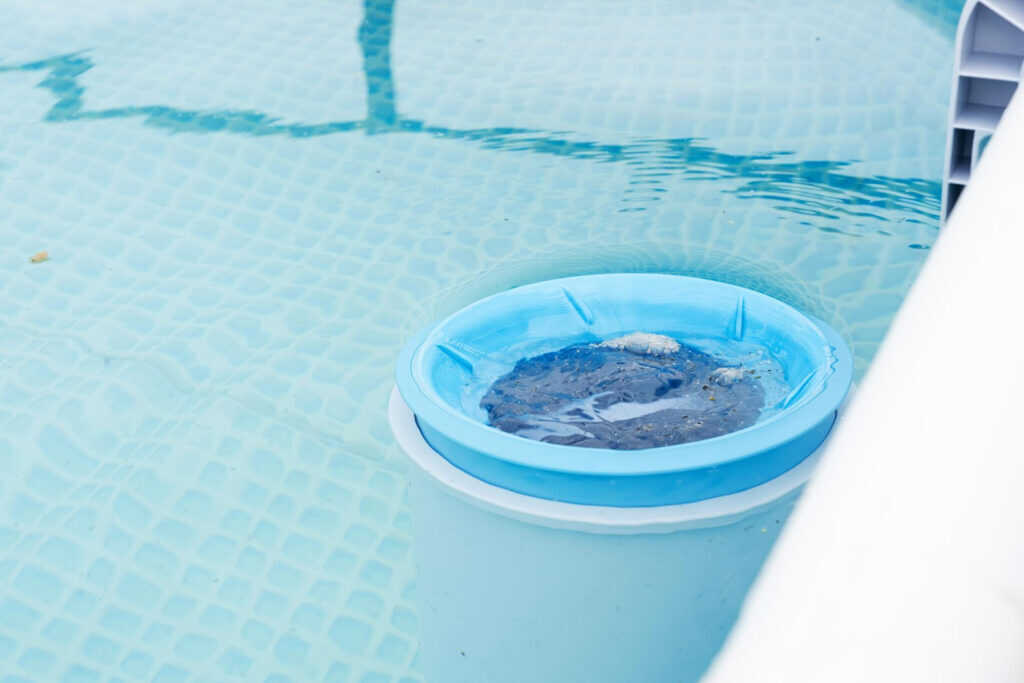Best Practices to Balance Work and Life in the Field
Balancing work and life in the field can be a challenging endeavor, especially in industries that require constant travel, such as pool service professionals. This blog post will explore practical strategies to enhance productivity, reduce stress, and improve overall well-being. By implementing these best practices, you can achieve a more harmonious work-life balance, leading to greater satisfaction both personally and professionally.
In today’s fast-paced world, maintaining a healthy work-life balance has become increasingly difficult. The demands of a job can often encroach on personal time, leaving little room for leisure or family activities. This is particularly true for those in fieldwork professions, where the line between work hours and personal time can blur. Understanding how to manage this aspect of your life is crucial for long-term success and mental health.
This article will delve into key practices that can help you strike that balance. We’ll discuss time management, setting boundaries, leveraging technology like [Pool Biller Software](https://ezpoolbiller.com/), and prioritizing self-care. By the end, you’ll have a toolbox of strategies to help you navigate the challenges of work and life more effectively.
Understanding the Importance of Work-Life Balance
The concept of work-life balance revolves around the need to manage both professional responsibilities and personal interests effectively. Achieving this balance is essential for maintaining mental health, fostering relationships, and enhancing productivity. According to a survey by the American Psychological Association, 61% of adults reported that work-related stress has a significant impact on their personal lives.
For professionals in the field, like those in pool service, the impact of work-life imbalance can be particularly pronounced. Long hours, irregular schedules, and the physical demands of fieldwork can lead to burnout if not managed properly. By understanding the significance of balancing these two vital aspects of life, you can make informed decisions that prioritize your health and happiness.
Mastering Time Management
Effective time management is a cornerstone of achieving work-life balance. When you learn to prioritize and allocate your time wisely, you can reduce stress and enhance productivity. One useful strategy is the Pomodoro Technique, which involves working in focused intervals followed by short breaks. This method can help maintain your focus and prevent burnout.
Additionally, consider using scheduling tools or apps to keep track of your tasks. For those in the pool service industry, incorporating [pool service software](https://ezpoolbiller.com/) can automate scheduling and reminders, ensuring that you remain organized without feeling overwhelmed. By having a clear plan for your day, you can allocate time for both work and personal activities effectively.
Setting Boundaries
Establishing boundaries between work and personal life is essential to achieving balance. This can be particularly challenging in fieldwork, where the flexibility of hours may lead to an “always-on” mentality. Setting clear work hours and communicating them to clients and colleagues will help create a structure that values your personal time.
In addition to time boundaries, consider establishing physical boundaries. For example, if you manage work from home, designate a specific workspace that is separate from your personal areas. This separation can help create a mental distinction between work and leisure, making it easier to disengage after hours.
Leveraging Technology
In today’s digital age, technology plays a significant role in helping professionals manage their work-life balance. One tool that can be particularly beneficial is a pool company app. Such applications can streamline billing, scheduling, and customer communication, allowing you to focus more on your work and less on administrative tasks.
Additionally, utilizing tools like [service company software](https://ezpoolbiller.com/) can automate repetitive tasks, minimizing the time spent on manual processes. By embracing technology, you can enhance efficiency and create more space for personal activities, leading to a better overall balance.
Prioritizing Self-Care
Amidst the hustle and bustle of work, it’s crucial to prioritize self-care. Engaging in activities that rejuvenate you—such as exercise, hobbies, or spending time with loved ones—can significantly improve your mental health. Schedule regular breaks throughout the day to recharge, and take advantage of downtime to engage in activities you enjoy.
Moreover, don’t underestimate the importance of sleep and nutrition. A well-rested body and a balanced diet can enhance your energy levels and overall well-being. By making self-care a non-negotiable part of your routine, you’ll find it easier to tackle work challenges with a fresh perspective.
Creating a Support System
Building a support system is vital for maintaining work-life balance. This could include friends, family, or colleagues who understand the challenges you face and can offer support. Sharing your experiences with others can provide not only emotional relief but also practical advice on managing similar situations.
In addition, consider professional networks or community groups related to your field. Engaging with others who share your experiences can foster a sense of belonging and provide insights into effective balance strategies. Remember, you don’t have to navigate this journey alone—connect with others who can support you along the way.
Handling Stress and Preventing Burnout
Fieldwork can be demanding, and recognizing the signs of stress and burnout is essential to maintaining your well-being. Symptoms may include irritability, fatigue, and a lack of motivation. When you notice these signs, it’s crucial to take action before they escalate. This could involve taking a short vacation, adjusting your workload, or seeking professional counseling.
Implementing mindfulness techniques, such as meditation or yoga, can also be effective in managing stress. These practices help ground you, allowing you to navigate daily challenges with a clearer mind. Additionally, finding outlets for relaxation, such as reading or spending time outdoors, can rejuvenate your spirit and combat stress.
Setting Realistic Goals
When striving for work-life balance, setting realistic goals is essential. Avoid overcommitting yourself; instead, determine what you can realistically achieve within a given timeframe. Break larger projects down into manageable tasks to prevent feeling overwhelmed.
Moreover, celebrate your achievements, no matter how small. Recognizing your progress can motivate you to continue striving for balance. By understanding your limitations and pacing yourself, you can foster a sense of accomplishment while maintaining a healthy equilibrium between work and personal life.
Conclusion
Balancing work and life, especially in the field, is a continuous journey that requires commitment and effort. By understanding the importance of time management, setting boundaries, leveraging technology like [pool service software](https://ezpoolbiller.com/), prioritizing self-care, and building a support system, you can significantly improve your work-life balance.
Remember, achieving this balance is not just about productivity; it’s about enhancing your overall quality of life. As you implement these strategies, you’ll find yourself more engaged in both your professional and personal spheres, leading to greater satisfaction and well-being.
Take charge of your work-life balance today! Start incorporating these practices into your routine and watch as your productivity flourishes and your personal life thrives.




